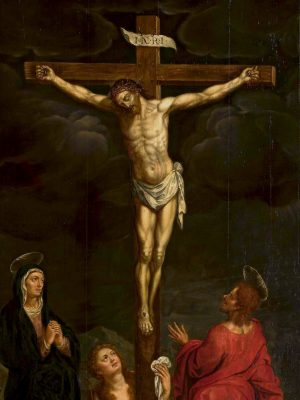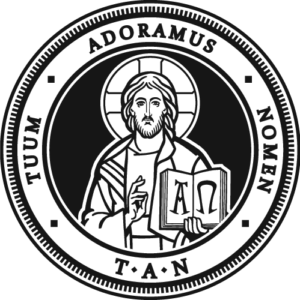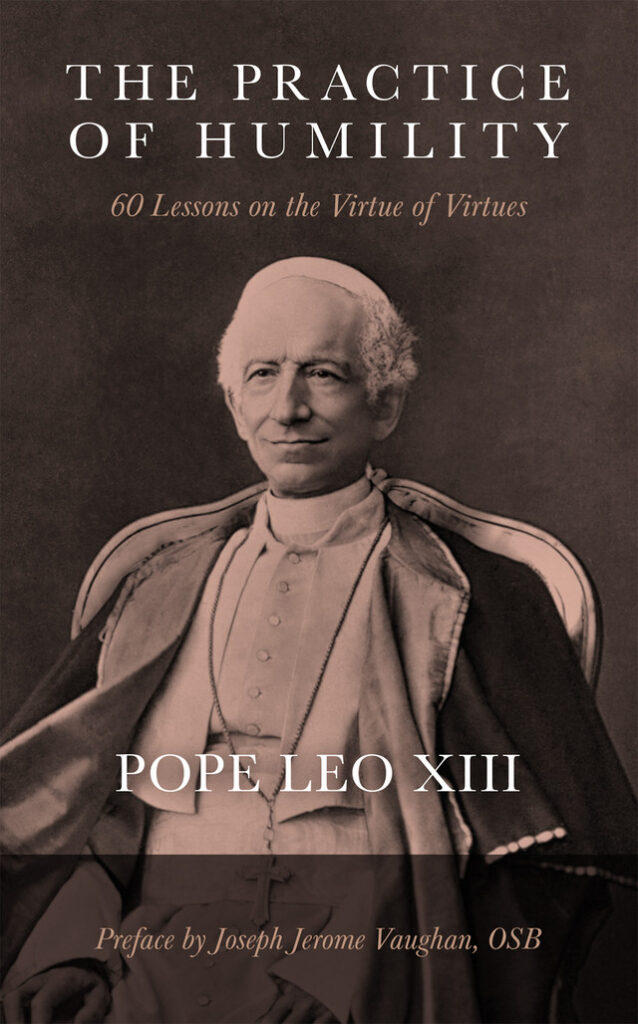Humility is the foundation on which all other virtues are built, it is the Virtue of virtues, and necessary for the salvation of our souls. Learn from five saints on humility and the integral role it plays in our salvation and sanctification.
-1-
Know, you humble, that our Redeemer “humbled Himself, becoming obedient unto death.”43 Know, you proud, that of your Chief it is written, “He is king over all the children of pride.”44 The beginning of our ruin, then, was the pride of the devil, and the cause of our redemption was the humility of God. For our enemy being created like all other things, wished to appear to be exalted above all; but our Redeemer, the greatest above all things, deigned to become the lowliest of all. Therefore, tell the humble, while they abase themselves they rise to the imitation of God; and tell the proud, while they exalt themselves, they sink down to the imitation of the apostate angel. Is there anything, therefore, more despicable than pride, which, while it exalts itself, recedes from the height of true greatness? Or is there anything more glorious than humility, which, while it stoops to the lowest depths is united to the Most High, its Creator?
—Saint Gregory the Great
(Past. Par. iii. Adm. xviii.)
-2-
In nothing can the two virtues of humility and charity be separated. And so inseparable is their connection, that he who is established in the one, is of necessity master of the other. For as humility is a part of charity, so is charity a part of humility. And if we carefully reflect on those works which the Apostle terms fruitless, and of no profit without charity,45 we shall find that these very same works are sterile if they be devoid of true humility. And of a verity, what fruit can knowledge produce united with conceit; or faith with human glory; or almsgiving with ostentation; or martyrdom with pride? Wherefore, since humility and charity both tend alike to the destruction of pride, what has been said of the one may be also applied to the other.
—Saint Ambrose
(Epist. Libr. x. ad Demetriadem)
-3-
Charity is preserved by means of humility, for there is nothing which destroys it so quickly as pride. Hence the Lord did not say: “Take up My yoke upon you and learn of Me,” to raise the dead, who had been in the grave four days; to cast out evil spirits from demoniacs; to heal diseases and work other similar miracles; but He did say:—“Take up My yoke upon you and learn of Me, because I am meek and humble of heart.”46 These miracles, indeed, are indications of spiritual things, but to be meek and humble is the preservative of charity.
—Saint Augustine
(In exposit. Epist. ad Galatas)
-4-
He who knows that he is dust and ashes, and into dust must soon return, will never proudly exalt himself: and he who has pondered upon the eternity of God, and reflects upon that short space, or, so to speak, point of space, which constitutes human life, will ever keep death before his eyes, and be humble and lowly. For this corruptible body weighs down the soul, and our hearts, entangled with so many things, become depressed by this earthly tabernacle. Wherefore, let us say in all humility:—“Lord, my heart is not exalted, nor are my eyes lofty; neither have I walked in great matters, nor in wonderful things above me.” All true humility, then, is to be sought, not so much in words as in the mind, so that in the innermost conviction of our souls, we should acknowledge ourselves to be nothing; nor ought we ever to imagine ourselves either to know or to understand anything, or to be anything at all.
—Saint Jerome
(In exposit. Epist. ad Ephes. cap. iv.)
-5-
My son, have a care above all things of humility, for this, of all virtues, is the most sublime, and the ladder whereby to reach the summit of perfection.
Good resolutions are not carried into effect save by humility, and the labors of many years are brought to nothing through pride. The humble man is like unto God, and carries Him within the temple of His heart; but the proud man, in being odious to God, bears resemblance to the devil. Although the humble man may appear outwardly loathsome and contemptible, yet he is glorious in his virtues; and, notwithstanding the loud display of state and dignity the proud man may make in sight of the world, yet his works quickly betray him as a man of no worth. His pride is detected by his gait and every movement, and his levity becomes apparent even in his words. He ever craves after the praises of men, and destitute as he is of all virtues, he goes about pretending to be full of them to the overflow. He cannot bear to be subjected to anyone, but ever aims at pre-eminence above others, and does all in his power to advance to a higher rank. That which he cannot obtain by merit, he endeavors to usurp by ambition. He walks about swelled with conceit, like a bag full of wind, and in all he does shows so much fickleness, that one might take him for a ship, which deprived of its captain, has become the sport of the billows. The humble man, on the contrary, shuns every earthly honor, reckons himself as the least of men, and though to look at, he would be taken to be of little importance, yet he stands eminently high before God. When he has fulfilled all that was commanded him he affirms that he has done nothing, and is most solicitous to conceal every virtue of his soul. But the Lord brings to light all his works, and proclaims them far and wide. He discovers his marvelous deeds to the world. He will exalt him and make him glorious, and in the hour of his prayer, grant him all he shall ask.
—Saint Basil the Great
(Admon. ad Fil. Spir.)
ooo
This article is taken from a chapter in The Practice of Humility: 60 Lessons on the Virtue of Virtues by Pope Leo XIII which is available from TAN Books.









